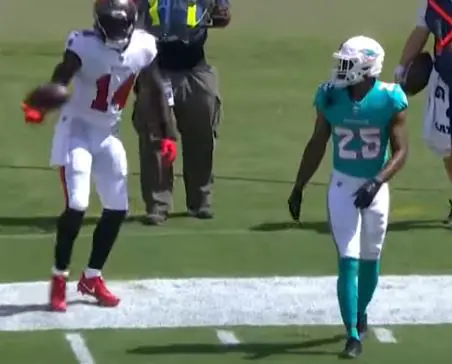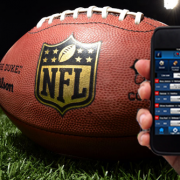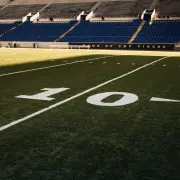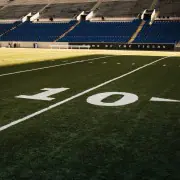Will Florida See Sports Betting Soon?
Last year, Florida, under the governorship of a sports betting-supporting Gov. Ron DeSantis and a pro-gambling legislature, succeeded in closing a deal with the state’s powerful Seminole gaming tribe that would have brought sports betting to the state in return for Seminole control of that betting.
A majority of Florida sports fans want to move on from their online casino play, like Intertops casino bonus games and move on to sports gambling in Florida, especially since sports betting is currently legal in more than half of U.S. states.
But the particulars of the deal, which would have let the Seminoles control sports betting by having mobile bets routed through servers located on their native lands, were ruled illegal by federal courts and the two sides seem to be back at Square One in their efforts to introduce Florida sports betting.
As the state government, the feds, gaming tribes throughout the United States, anti-gambling activists, legal observers and sports fans watch, it is becoming clear that this issue will almost certainly be fought out in the courts with no resolution seen for the near future.
Seminoles Team Up With the Feds
The Seminoles are doing everything that they can to ensure that the Tribe’s gaming compact with the State of Florida is reinstated. The deal is a potentially lucrative one for them.
If the federal district judge’s ruling that the compact – which granted the Tribe the exclusive right to operate Florida online sports betting — can be overturned, Florida sports bettors will be able to have their bets processed from anywhere in Florida via the servers located on tribal lands, regardless of where the bettor is located physically.
When the compact was signed in 2021 sports betting became temporarily legal in Florida but within months, federal district judge Dabney Friedrich rejected the proposed structure, calling it “fiction” that was designed to evade the IGRA requirement that all gaming activity “authorized” by a compact take place “on Indian lands.”
Opponents of the compact, including a number of non-tribal Florida casinos and anti-gambling activists, were pleased with the decision.
Now the Seminole Tribes and the Department of the Interior, which oversees tribal casinos are teaming up to see the compact accepted. The two bodies filled appellate briefs with the D.C. circuit Court of Appeals, arguing that the compact didn’t “authorize” online sports betting but rather authorized in-person sports betting on tribal lands.
The online sports betting component, they argue, was authorized by Florida state law. The brief states that sports betting provisions of the compact “reflect a permissible hybrid approach, wherein gaming activity that occurs off of the Tribe’s Indian lands is authorized under state law, and gaming activity that occur on Indian lands is authorized by IGRA pursuant to the Compact.”
In effect, says the brief, the language of the compact doesn’t specifically “authorize” online sports betting but rather transfers regulatory jurisdiction over sports betting wagers from the State to the Tribe.
The brief reads in part, “[b]ecause the jurisdiction over the placement of any wager occurring off of Indian lands would normally fall to the State, the compacting parties used IGRA’s jurisdiction allocation provisions to allocate the State’s jurisdiction over that specific aspect of the online sports betting transaction to the Tribe for regulatory purposes . . . so that the Tribe can regulate the [entire online sports betting] transaction from start to finish under the terms of the 2021 Compact. . .”
Allocation of Jurisdiction
In effect, by calling the compact an “allocation of jurisdiction” the DOI and the Seminole Tribe are trying to circumvent the IGRA’s “Indian lands’ limitation by converting betting that originates “off of Indian lands” into gambling that occurs “on Indian lands.”
Legal observers believe that the Seminoles and the Department of the Interior’s Bureau of Indian Affairs have a long road ahead of them in their efforts to overturn the District Court’s ruling. The brief cites 3 cases as support of the “jurisdiction-shirting” but in point of fact, none of these cases involve off-reservation gaming. Instead, they relate to state jurisdiction over other activities – activities that are completely unrelated to gaming.
For example, in Chicken Ranch Rancheria of Me-Wuk Indians v. California the case revolved around whether California acted in good faith regarding its demand of the inclusion of provisions relating to environmental regulation, tort claims and family law in its compact negotiations.
In Pueblo of Santa Ana v. Nash, the court was asked to rule over whether a personal injury lawsuit that arose out of the alleged negligent serving of alcohol inside a tribal casino could be heard by a state court.
And in Dalley vs. Navajo Nation, the the issue involved whether the New Mexico state court was the place to hear a personal injury tort claim that arose out of a casino patron’s “slip and fall” on a tribal casino’s wet bathroom floor.
While each case touched on casino and gaming issues, the question is whether those issues fell under the scope of IGRA. In those cases, the courts did rule that such extraneous issues were related to or necessary for the licensing and regulation of Class III gaming activities.
To win its case, the Seminole Tribe and the Bureau of Indian Affairs/Department of Interior will have to create precedent. There’s no history of a gaming compact being used to grant a tribe regulatory jurisdiction over any type of gambling activities that occur on non-tribal state lands.
As things stand now, sports fans in Florida may have to wait quite a while as the state, the tribes and other gaming forces find a different avenue that will allow them to bring legal online sports betting to the state.









Leave a Reply
Want to join the discussion?Feel free to contribute!